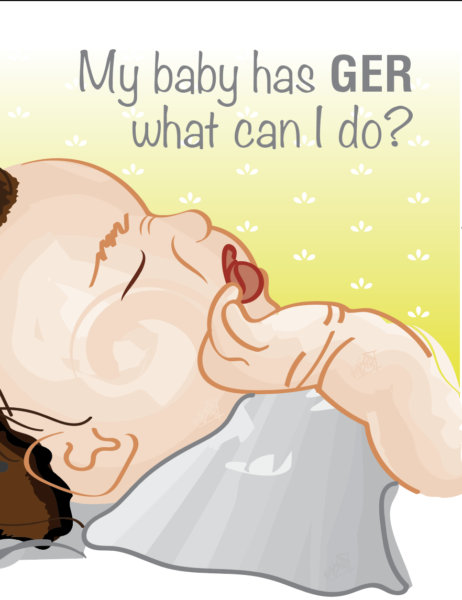
GERD in infants, or gastroesophageal reflux disease, is a chronic digestive condition that affects some babies during their early months. It occurs when stomach contents flow back into the esophagus, causing discomfort and irritability in the little ones. This post explores the possible causes, symptoms, and effective management strategies for GERD in infants.
Causes of GERD in Infants:
GERD in infants is often linked to the immaturity of the lower esophageal sphincter (LES), a muscle that separates the stomach from the esophagus. Sometimes, the LES may not function properly, allowing stomach acids to regurgitate back into the esophagus. Other factors such as overfeeding, allergies, and sensitivities to certain foods can contribute to the development of GERD symptoms in infants.
Identifying GERD in Infants:
Recognizing the signs of GERD in infants is crucial for early intervention. Common symptoms include frequent spitting up, excessive crying, arching of the back, and refusing to eat. Therefore, babies with GERD may also experience difficulty sleeping. Signs of discomfort during or after feedings can be common. And display feeding aversion, which means they may not want to feed.
Managing GERD in Infants:
- Adjust Feeding Techniques: Feeding infants with GERD in an upright position can reduce the likelihood of reflux episodes. Smaller, more frequent feedings can lead to prevent overloading the stomach and minimize reflux. Bare® Air-free, mechanically expels all the air from inside the container, like a syringe. Its patent air-plug dispenses milk with suction, instead of gravity. This means that babies can feed in a 100% vertical upright position and control the flow and pace with suction strength, as babies do with breastfeeding.
- Thickened breastmilk/formulas: Pediatricians may recommend using thickened contents for babies with GERD. There are thickeners, rice, or oat cereals that can be added to the milk. Higher viscosity liquids are heavier. By keeping the baby in an upright position, gravity will keep the food in place, which can reduce the likelihood of regurgitation.
- Do not overfeed: Infants can easily chugg several ounces of milk at a time, only to stop and projectile-vomit it everywhere. Get in the habit of feeding smaller and more frequent feedings. Using a timer to get ahead of the baby’s schedule can be a good idea. This way the baby is not starving at mealtime.
- GERD treatments can cost several thousands of dollars per year. Typically, treatments include expensive formulas, OTC medication, and inadequate bottles without results. Nipping the problem in the bud by using the right feeding device can save parents the financial burden. Try Bare® Air-free to stop GERD symptoms before they start.
Always Consult a Pediatrician:
If GERD symptoms persist or worsen, it’s crucial to consult a pediatrician for a thorough evaluation. A healthcare professional can provide tailored advice, monitor the baby’s reflux condition, and rule out any underlying medical concerns.
How to treat and prevent infant GERD – summary
GERD in infants can be a challenging and distressing experience for both babies and parents. By understanding the causes and recognizing the symptoms of GERD, parents can take proactive steps to manage the condition effectively. Adjustments in feeding techniques, using specialized feeding devices, and avoiding overfeeding can go a long way in easing reflux symptoms. Remember, seeking guidance from a healthcare professional is essential for a proper diagnosis and personalized treatment plan.
